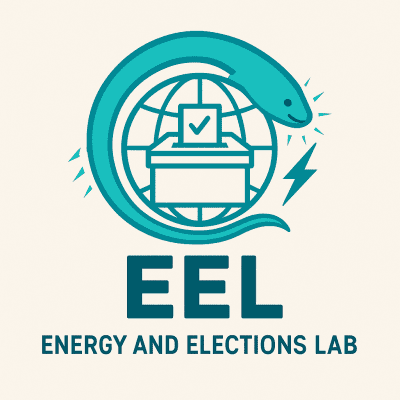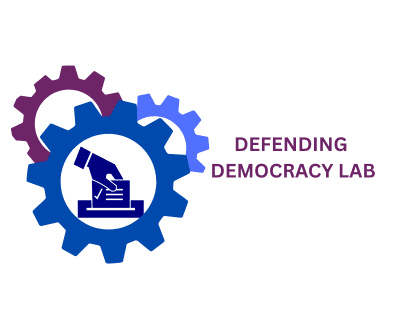Research Labs
Our research labs advance collaborative faculty and graduate student research, create opportunities for grant writing and applications, advance student training in research, and increase the visibility and community outreach of research clusters in the Department of Political Science.
Below is a list of our active faculty research laboratories. For more information about a lab or to inquire about research opportunities, please visit individual lab websites, contact the lab directors, or connect with the chair of the research coordination committee, Jeremy Pressman.
About Our Labs
Director: Evan Perkoski, Associate Professor of Political Science
The UConn Innovation Hub for Conflict and Security seeks to advance research, education, and outreach on issues related to conflict and security, both in the United States and abroad. Our researchers work on issues such as terrorism, insurgency, mass violence, cyber warfare, and civil resistance.
The foundations of democratic politics are now increasingly under threat. Since 1985, more countries have moved closer toward autocratic government than toward more substantial and meaningful democratic government. The Defending Democracy Lab provides new insights into ways of strengthening democratic accountability, stifling democratic backsliding, and countering emerging anti-democratic terms. The lab’s goal is to offer interdisciplinary research, pedagogical innovations for the University and high school level, and new forms of civic engagement that intersect with three central themes: populism and polarization, strategies of democratic resistance, and mechanisms of democratic renewal.
Energy and Elections Lab (EEL)
Co-Directors: Lyle Scruggs, Professor of Political Science, and Oksan Bayulgen, Professor of Political Science

The decarbonization of the U.S. energy system is crucial to fight climate change — but not inevitable. It hinges on the political feasibility of large expansions in renewable energy infrastructure, electrification of current energy demand, and development of novel, non-carbon process technologies for industry and agriculture. The Energy and Elections Lab seeks to understand both the political determinants of and responses to the decarbonization of the U.S. energy system. The main research focus of the lab is on domestic U.S. politics and energy from the local to national level, with an emphasis on how individuals interact with the U.S. political system. The work has potential to scale internationally, since the political and technological processes we study have counterparts in other countries as well. Our work also sheds light more locally on the political psychology of citizens, illustrating how people prioritize the costs and benefits of renewable energy sources and energy technologies and services.
Global Intersectional Indigeneity, Race, Ethnicity, and Politics (IIREP) Lab
Directors: IIREP Core Faculty
Countries across the globe are witnessing dramatic political transformations. Governments, movements, organizations, and citizens engage in conflicts over immigration and border control, the rights and treatment of refugees, violent encounters between law enforcement and racialized communities, and the disparate impacts of the global climate crisis. The Global Intersectional Indigeneity, Race, Ethnicity, and Politics (IIREP) Lab explores the historical, cultural, and structural conditions of these changes through engaged, collaborative, and transdisciplinary research and pedagogy. As the home of the IIREP Graduate Certificate and Master of Arts (MA) programs, our lab is one of the first U.S.-based labs to focus on the global politics of race, ethnicity, and indigeneity from an intersectional perspective. Together, we will continue to study the struggles of nations and peoples forcibly severed from their relations to land, oppressed across multiple axes of difference, and who are subject to increasingly authoritarian forms of state, corporate, and social power.
Political Economy and Representation (PEAR) Lab
Co-Directors: Thomas Hayes, Associate Professor of Political Science, and Jason Byers, Assistant Professor of Political Science
The Political Economy and Representation Lab aims to examine questions related to representation and responsiveness, political accountability, and the ways that partisan control of government can influence social and economic policy. We study the ways in which elected officials respond to constituents from different economic backgrounds, the effect that party control of state government can have on economic outcomes, relationships between representatives and constituents (e.g. Congress and district constituencies), the extent to which voters hold elected officials accountable, and the ways in which elected representatives provide descriptive and substantive representation.
Puerto Rican Studies Initiative for Civic Engagement and Public Policy (PRSI)
Director: Charles R. Venator Santiago, Associate Professor of Political Science and Director of El Instituto
The Puerto Rican Studies Initiative for Community Engagement and Public Policy (PRSI) is a research lab seeking to document and support Puerto Ricans’ vital economic, intellectual, and cultural contributions to Connecticut and to provide research-based support for the development of public policies addressing the needs of Puerto Ricans in the state. This initiative is part of a collaboration among various programs, including El Instituto, Puerto Rican and Latin@ Studies Project, and the Hispanic Health Council/Mi Casa. This initiative is funded by the Connecticut General Assembly with American Rescue Plan Act funds.
